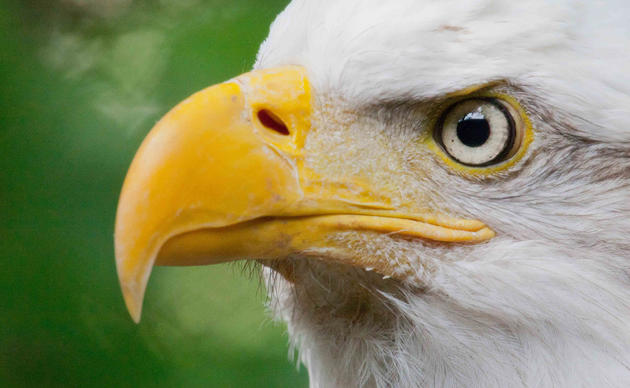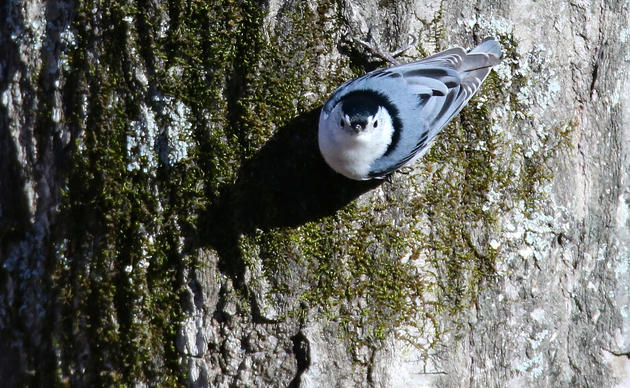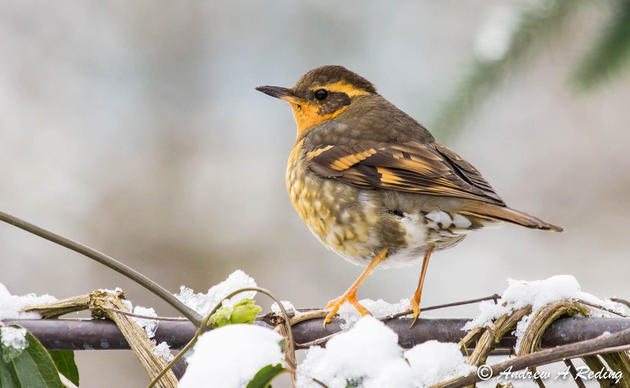OLYMPIA, Wash. — Today, the Washington State House voted 56 to 42 to establish a 100 percent clean energy standard across the state. The Senate passed this legislation last month and will now need to vote to concur with a few changes before it goes to Governor Jay Inslee to be signed into law.
“Movements need trail blazers and Washington has stepped up. The urgency to create a clean energy future has never been clearer, but it requires the leadership Washington has shown. The Evergreen State is living up to its nickname and creating a cleaner, safer future for Washington’s birds and people,” said David Yarnold (@david_yarnold), president and CEO of National Audubon Society.
“When it comes to reducing carbon pollution, birds tell us we don’t have time to waste. We have four states down, 46 to go, and the West is showing the way.”
Washington joins Hawaii, California, New Mexico and Puerto Rico in setting 100 percent clean energy standards. Audubon Washington was a major partner in a coalition of clean energy advocacy groups that rallied communities across the state in the effort to get Olympia legislators to support the bill.
“I’m so proud of the tens of thousands of Audubon members in Washington who helped get us here today,” said Gail Gatton (@GailGatton), executive director of Audubon Washington, the state office of the National Audubon Society.
“Poll after poll show the move to clean energy is supportedoverwhelmingly by Washingtonians and is, simply put, the right thing to do. This is truly a great day for Washington.”
Senate Bill 5116 would:
- Phase out coal from our electricity grid by 2025, accelerating the closure of coal plants in Montana and Wyoming that are among the largest sources of climate pollution in the American West;
- Put in place interim emission reduction targets starting in 2030 that would prevent unnecessary and costly near-term build out of new fracked gas infrastructure in our electric grid -- ensuring an orderly transition to clean electricity;
- Require investment in low-income communities to address historic energy inequities and inclusion of equity in the planning and acquisition of clean energy;
- Increase investments in clean, renewable energy and energy efficiency, adding more jobs to the state’s clean energy industries that already employ more than 82,000 Washingtonians - 13 times as many as fossil fuels.
- Commit to powering Washington State’s entire electric grid with 100% clean energy by 2045.
In 2014, Audubon released its Birds and Climate Change Report, which showed more than half of the bird species in North America at risk of disappearing by 2080 due to shifting and shrinking ranges caused by climate change. Included in the list of 314 were many found in Washington State, including the Bald Eagle, Mallard, and Anna’s Hummingbird.
About National Audubon Society
The National Audubon Society protects birds and the places they need, today and tomorrow, throughout the Americas using science, advocacy, education and on-the-ground conservation. Audubon’s state programs, nature centers, chapters and partners have an unparalleled wingspan that reaches millions of people each year to inform, inspire and unite diverse communities in conservation action. Since 1905, Audubon’s vision has been a world in which people and wildlife thrive. Audubon is a nonprofit conservation organization. Learn more at www.audubon.org and @audubonsociety.
About Audubon Washington
Established in 1981, Audubon Washington works statewide with its 25 independent chapters and 35,000 members on the conservation of the sagebrush shrub steppe ecosystem in Eastern Washington, protection of coastal estuaries, and actions that address climate change, the number one threat to birds today. Through the Seward Park Audubon Center, it provides science, nature and environmental education programs for youth and families. Learn more at http://wa.audubon.org/, @audubonWA.
Media Contact: Nicolas Gonzalez, 212-979-3068, ngonzalez@audubon.org.
###



